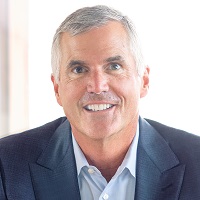Why Gen X Marks the Spot for Rethinking Retirement
Retirement plans that worked for Baby Boomers may not fit the bill for Gen Xers. If you're nearing 60, it's time to bring your retirement strategy up to date.


Profit and prosper with the best of Kiplinger's advice on investing, taxes, retirement, personal finance and much more. Delivered daily. Enter your email in the box and click Sign Me Up.
You are now subscribed
Your newsletter sign-up was successful
Want to add more newsletters?

Delivered daily
Kiplinger Today
Profit and prosper with the best of Kiplinger's advice on investing, taxes, retirement, personal finance and much more delivered daily. Smart money moves start here.

Sent five days a week
Kiplinger A Step Ahead
Get practical help to make better financial decisions in your everyday life, from spending to savings on top deals.

Delivered daily
Kiplinger Closing Bell
Get today's biggest financial and investing headlines delivered to your inbox every day the U.S. stock market is open.

Sent twice a week
Kiplinger Adviser Intel
Financial pros across the country share best practices and fresh tactics to preserve and grow your wealth.

Delivered weekly
Kiplinger Tax Tips
Trim your federal and state tax bills with practical tax-planning and tax-cutting strategies.

Sent twice a week
Kiplinger Retirement Tips
Your twice-a-week guide to planning and enjoying a financially secure and richly rewarding retirement

Sent bimonthly.
Kiplinger Adviser Angle
Insights for advisers, wealth managers and other financial professionals.

Sent twice a week
Kiplinger Investing Weekly
Your twice-a-week roundup of promising stocks, funds, companies and industries you should consider, ones you should avoid, and why.

Sent weekly for six weeks
Kiplinger Invest for Retirement
Your step-by-step six-part series on how to invest for retirement, from devising a successful strategy to exactly which investments to choose.
As the oldest members of Generation X close in on age 60, retirement decisions are moving front and center. Many Gen Xers have spent decades carefully saving and investing in their retirement, but even those who have closely followed the savings playbook are starting to question whether their retirement dream will become a reality.
In 2024, 71% of Gen Xers are considering delaying their retirement, up from 65% in 2023, according to a recent survey from F&G. Nearly half (49%) said they are worried about not having enough money for retirement. But even amid volatility and uncertainty, there are steps Gen Xers can take to ease these concerns.
Retirement considerations for a new generation
It’s no secret that retirement looks different for everyone, and generations today are approaching it with more consideration than their parents and grandparents. Whether it is to continue the intellectual challenge and stimulation that comes from working, as I did, or pursuing new passions, the concept of retirement may well look different for current and future retirees.
From just $107.88 $24.99 for Kiplinger Personal Finance
Become a smarter, better informed investor. Subscribe from just $107.88 $24.99, plus get up to 4 Special Issues

Sign up for Kiplinger’s Free Newsletters
Profit and prosper with the best of expert advice on investing, taxes, retirement, personal finance and more - straight to your e-mail.
Profit and prosper with the best of expert advice - straight to your e-mail.
It's important to keep in mind that planning for retirement isn’t a one-size-fits-all journey. The traditional path that our parents and grandparents went down may not align with Gen Xers’ personal aspirations or evolving life circumstances.
That doesn’t mean there isn’t an abundance of retirement planning knowledge that Baby Boomers (both older and younger ones like myself) can pass down. However, it’s important to keep in mind that Gen Xers require tailored advice tied to their unique financial challenges and aspirations. That kind of advice isn’t always transferable from generation to generation.
How cautious Gen Xers can protect their nest eggs
This is a crucial time for Gen Xers to shift their focus from simply accumulating wealth to strategically planning the distribution of their savings as they enter retirement. While this generation is tech-savvy and often has a DIY ethos, I think they would also be well served by supplementing their own expertise with a professional financial coach who can discuss both their personal financial goals and the products that can help turn those goals into reality.
Particularly attractive, yet often overlooked, options for Gen Xers to consider are annuities, which can allow investors to pursue growth potential with an added layer of protection. Notably, our survey found that less than a quarter (19%) of Gen Xers own an annuity.
Annuities can take the pressure off a portfolio while offering peace of mind that people won’t outlive their savings. With the traditional corporate pensions many of their parents relied on now a thing of the past, annuities can provide an opportunity for Gen X to create their own pension-like income. These products are also well suited to weather inflation and stock market volatility.
They’re a good fit for a generation that lived through an array of global volatility, including the boom and subsequent dot-com bust of the ’90s, the financial crisis of 2008 and most recently a pandemic and inflation concerns that are just starting to slow now. Given that, it’s no surprise that Gen Xers have lingering volatility fears in the back of their minds. In fact, we found that nearly half of Gen Xers continue to remain worried about inflation (47%) in addition to a recession or stock market downturn (31%).
Why Gen Xers should consult an 'Xpert'
I recommend that people consult a financial adviser before buying an annuity or any financial product. Financial advisers are critical partners who can ensure that the products people are invested in will meet their financial needs. Yet, according to our study, only half of Gen Xers are currently working with a financial adviser. For those who are seeking safety and certainty, financial advisers can help put them on a path to guaranteed income and a less stressful retirement.
But no one should expect a financial adviser to do all the work for them. It’s important that people come prepared to any conversation with their financial adviser. Online tools like retirement savings calculators, budgeting tools and investment tracking apps can empower people with the data they need to ask the right questions and ensure that both they and their financial adviser are on the same page.
Retirement isn’t just a number: It holds different meanings for everyone. By addressing financial concerns now, Gen Xers can clarify their unique vision for retirement and set themselves on the path to achieving their ultimate goals.
Note: The F&G survey was conducted online by Directions Research and fielded from May 1 to May 16, 2024, among a nationally representative sample of 2,048 U.S. adults. Respondents were targeted to Americans ages 50+, who are financial decision-makers, that have $100K+ in financial products/savings.
Related Content
- Gen X Should Prepare Now for the Great Wealth Transfer
- Gen Xers Ask: ‘Can I Afford to Retire?’
- Five Things About Annuities That May Surprise You
- 12 Steps to Protect Your Retirement Savings From Market Volatility
- Why More Retirees Might Come Out of Retirement
Profit and prosper with the best of Kiplinger's advice on investing, taxes, retirement, personal finance and much more. Delivered daily. Enter your email in the box and click Sign Me Up.

For more than 30 years, Chris Blunt has held senior leadership positions at several major insurance and financial services companies. He joined F&G in 2019 and currently serves as the Chief Executive Officer. Prior to that, he served as Chief Executive Officer at Blackstone Insurance Solutions and spent nearly 13 years at New York Life in a variety of executive roles.
-
 Look Out for These Gold Bar Scams as Prices Surge
Look Out for These Gold Bar Scams as Prices SurgeFraudsters impersonating government agents are convincing victims to convert savings into gold — and handing it over in courier scams costing Americans millions.
-
 How to Turn Your 401(k) Into A Real Estate Empire
How to Turn Your 401(k) Into A Real Estate EmpireTapping your 401(k) to purchase investment properties is risky, but it could deliver valuable rental income in your golden years.
-
 My First $1 Million: Retired Nuclear Plant Supervisor, 68
My First $1 Million: Retired Nuclear Plant Supervisor, 68Ever wonder how someone who's made a million dollars or more did it? Kiplinger's My First $1 Million series uncovers the answers.
-
 How to Turn Your 401(k) Into A Real Estate Empire — Without Killing Your Retirement
How to Turn Your 401(k) Into A Real Estate Empire — Without Killing Your RetirementTapping your 401(k) to purchase investment properties is risky, but it could deliver valuable rental income in your golden years.
-
 Don't Bury Your Kids in Taxes: How to Position Your Investments to Help Create More Wealth for Them
Don't Bury Your Kids in Taxes: How to Position Your Investments to Help Create More Wealth for ThemTo minimize your heirs' tax burden, focus on aligning your investment account types and assets with your estate plan, and pay attention to the impact of RMDs.
-
 Are You 'Too Old' to Benefit From an Annuity?
Are You 'Too Old' to Benefit From an Annuity?Probably not, even if you're in your 70s or 80s, but it depends on your circumstances and the kind of annuity you're considering.
-
 In Your 50s and Seeing Retirement in the Distance? What You Do Now Can Make a Significant Impact
In Your 50s and Seeing Retirement in the Distance? What You Do Now Can Make a Significant ImpactThis is the perfect time to assess whether your retirement planning is on track and determine what steps you need to take if it's not.
-
 Your Retirement Isn't Set in Stone, But It Can Be a Work of Art
Your Retirement Isn't Set in Stone, But It Can Be a Work of ArtSetting and forgetting your retirement plan will make it hard to cope with life's challenges. Instead, consider redrawing and refining your plan as you go.
-
 The Bear Market Protocol: 3 Strategies to Consider in a Down Market
The Bear Market Protocol: 3 Strategies to Consider in a Down MarketThe Bear Market Protocol: 3 Strategies for a Down Market From buying the dip to strategic Roth conversions, there are several ways to use a bear market to your advantage — once you get over the fear factor.
-
 Dow Adds 1,206 Points to Top 50,000: Stock Market Today
Dow Adds 1,206 Points to Top 50,000: Stock Market TodayThe S&P 500 and Nasdaq also had strong finishes to a volatile week, with beaten-down tech stocks outperforming.
-
 Why Picking a Retirement Age Feels Impossible (and How to Finally Decide)
Why Picking a Retirement Age Feels Impossible (and How to Finally Decide)Struggling with picking a date? Experts explain how to get out of your head and retire on your own terms.